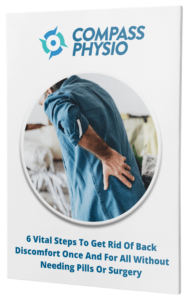PEACE & LOVE
Patrick Mulligan |
A recent British Journal of Sports Medicine article has put forward the most current evidence based management strategies for soft tissue injuries.
The article itself challenges some of the previous beliefs and looks to bring clarity around soft tissue injury management.
Previous literature has put forward acronyms including PRICE, ICE and RICE. Some people may be familiar with these acronyms but there is still uncertainty amongst a large cohort of people with regards to icing, the use of heat, to take or not to take anti-inflammatories. This proposed article and approach is designed to clear up those concerns.
The article itself proposes two new acronyms to replace the previous mentioned above and these are – PEACE & LOVE.
Unlike previous approaches both these two new terms try to incorporate sub-acute and chronic stages of tissue healing. This simply means managing soft tissue injuries is more than a short term quick fix.
The other premise behind the put forward approach involves treating the person with the injury as opposed to the injury of the person.
PEACE & LOVE acronyms are described below:
P is for Protect.
A period of rest may be required but equally remaining mobile as pain allows is important. Certainly avoiding return to strenuous activity is recommended. This article recommends considering unloading 1-3 days to prevent bleeding/ damaging injured tissue fibres. However if we unload too much we can compromise tissue strength and tissue quality. It is important to find a balance between unloading and loading and you should be guided by pain and swelling in this instance.
E is for Elevation.
The key thing here is to emphasise that the limb must be elevated above heart level to promote fluid flow out of the tissue. Often people will take the time to elevate but unfortunately just throw the limb out on a stool below heart level and unfortunately they are not getting the maximum benefit from this approach.
A is for avoidance of anti-inflammatories.
This is relatively new research which considers anti-inflammatories being detrimental for long term healing. The medication is thought to inhibit an important process which is likely to prevent tissue healing. It puts emphasis on wanting new cells to come to the injured area and not wanting to stop this process. Macrophages are a type of specific cells and it is thought that infiltration and revascularization with these cells are important to help with collagen growth to repair the injured structure.
C is for Cryotherapy and Compression.
The research around cryotherapy is questioning its role in reducing swelling. If anything ice it is thought to have a pain reducing effect but the evidence is also limited. Compression will influence the vascular pressures and the evidence suggests it helps reduce swelling. Taping and bandages will help to limit intra articular edema/ swelling.
E is for Education.
The promotion of an active over passive approach to recovery is very important. By the patient undertaking an active recovery, it is important for tissue healing, pain and function. Passive treatments such as electrotherapy / manual therapy and acupuncture in the management of this type of injury have had a trivial effect on pain and function. By moving away from the reliance on the ‘need to be fixed’ approach and better understanding of how to actively re-start loading the injury this will help avoid overtreatment and poorer outcomes. Better understanding of the condition itself including realism with the patient about recovery times is very important. Quick fixes often do not exist.

Soft Tissues also need LOVE after the first few days:
L is for Load.
It is ok to complete active movements whilst respecting pain. Mechanical stress should be integrated early and encourage normal activities resumption. By moving early and respecting pain, it promotes repair, remodelling and builds the tolerance of the tissue. It also facilitates the muscle / ligament and tendon capacity through mechanotransduction (cellular responses basically). Promotion of early movement respecting pain is very different from early return to training/ game play.
O is for Optimism.
The brain and rehabilitation are closely linked. Emotional factors including catatropisation, depression and fear can be barriers to recovery. A pessimistic expectation is closely linked sub-optimal outcomes. A close relationship with your physiotherapist should allow the opportunity to ask questions and resolve any underlying concerns.
V is for Vascularisation.
Physical exercise that includes CV input is important in the management of any MSK/ soft tissue injury. It is often the case that a modified approach to CV exercise can be found in substitute to regular activity. For instance an injury restricting the ability to run may well benefit from CV input using a static bike. The research is limited in terms of optimal dosage but this does not mean that pain-free CV should not be started to boost positive approach and blood flow to the injured area. The evidence suggests that if we can get people moving early, it is linked to improved function, early return to work and reduce reliance on medications.
E is for Exercise.
Early introduction of exercise is important for restoring mobility, strength and proprioceptive input after an injury. There is a strong level of evidence suggesting that exercise helps with reducing the prevalence of recurring injuries. Once again pain should be avoided to ensure optimal repair in the sub-acute phase of recovery. Use pain levels also as a guide to progress the exercises.

How Can Physiotherapy Help?
If you are finding it hard to complete regular exercises due to pain, fatigue or simply time schedules speak to us at Compass Physio.
Exercise is for everybody. At Compass physio we will complete a full physical assessment and will help identify any possible underlying causes that may limit your exercise regime.
Our chartered physiotherapists will help you to build strength and strategies which will help tackle any problem.
At Compass physio we will help you succeed and reach your goals.
To find out how Compass Physio can help, call 046 954 9456 (this number covers all clinics), click here to book online.
You can also email any questions to info@compassphysio.ie
Paddy Mulligan – MISCP Chartered Physiotherapist Compass Physio

